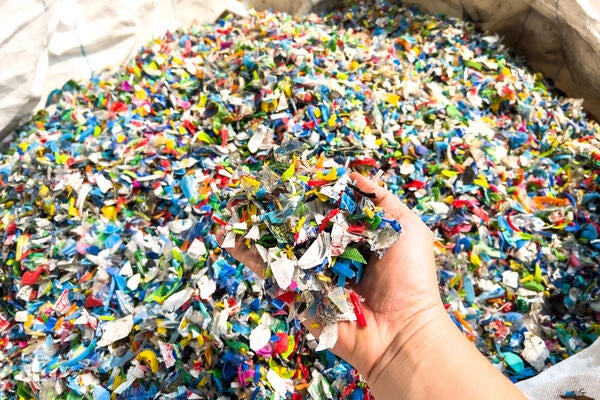
Older Canadians say they’re more willing to get the flu shot in the wake of COVID-19
The pandemic has increased older adults’ willingness to receive the flu shot.

The pandemic has increased older adults’ willingness to receive the flu shot.
By Media RelationsThe pandemic has increased older adults’ willingness to receive the flu shot, new research shows.
The study analyzed survey results of 4,501 Canadians over the age of 50 from ten provinces.
Twenty per cent of 1,001 research participants aged 50 to 64 indicated they had not considered getting a flu shot, but were now more likely to given the impact of COVID-19. Of these respondents, 92 per cent inducated that they had not been vaccinated against influenza the year before.
Of the 3,500 participants aged 65 and older, eight per cent reported that they had not originally planned to get a flu shot but were now more likely to receive it.
“The pandemic has been a sobering demonstration of the dangers of infectious diseases,” said Nancy Waite, a professor at the School of Pharmacy and the lead author on the study. “We’ve seen changing perceptions of the value of vaccines and a documented change in people’s willingness to consider getting vaccinated.”
Participants who said they would get the influenza vaccine—both those who got it before and those who had not—cited various reasons that reinforced their decision. For some, COVID-19 has demonstrated the devastating potential of viruses, and this awareness sparked the realization that there are severe outcomes of influenza due to risk factors including age. Others also cited the increased risks due to COVID-19 and influenza circulating simultaneously, or a desire to reduce vulnerability to COVID by protecting against influenza.
Just over two per cent of 50- to 64-year-olds and 0.8 per cent of respondents 65 years and older indicated that although they had previously received the influenza vaccine, during the COVID-19 pandemic they were less likely to consider influenza vaccination. This smaller group of participants cited fear of being exposed to COVID-19 when receiving their influenza vaccination and decreased anticipated risk of contracting influenza due to social distancing, as reasons.
“It is helpful for health-care providers who have vaccine conversations with the public to understand the context in which individuals are making decisions. These contexts are fluid, and we need to answer the questions individuals currently have to help them make informed decisions,” Waite said. “Our findings demonstrate that the pandemic has created new motivations for many older adults to be accepting of the influenza vaccine but has also created concerns for a small group that health care professionals should be prepared to address.”
The study was recently published in the journal, Vaccines, and featured a cross-disciplinary research team from the University of Waterloo, Laval University in Quebec, Dalhousie University in Nova Scotia, and JRL Research and Consulting.

Hand holding small pieces of cut colourful plastic bottles, which Waterloo researchers are now able to convert into high-value products using sunlight. (RecycleMan/Getty Images)
Read more
Sunlight-powered process converts plastic waste into a valuable chemical without added emissions

Dr. Travis Craddock, professor and Canada Research Chair, says the team's findings change our basic knowledge of biology (University of Waterloo).
Read more
New study reveals quantum-level effects in biology with major implications for treatment of some brain diseases

ESO 137-001, a jellyfish galaxy like the one recently observed by astrophysicists at the University of Waterloo. (Credit: NASA, ESA)
Read more
New astronomical find is 8.5 billion years old and reshapes our understanding of early cosmic evolution
The University of Waterloo acknowledges that much of our work takes place on the traditional territory of the Neutral, Anishinaabeg, and Haudenosaunee peoples. Our main campus is situated on the Haldimand Tract, the land granted to the Six Nations that includes six miles on each side of the Grand River. Our active work toward reconciliation takes place across our campuses through research, learning, teaching, and community building, and is co-ordinated within the Office of Indigenous Relations.